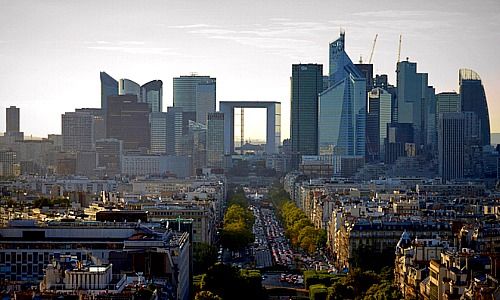The uncertain future of the City after Brexit has prompted financial companies to look for alternative locations to set up shop. It gladdens the promoters of locations, but poses problems as well.
Urs Rueegsegger, the head of SIX, has made up his mind. Instead of waiting for Westminster to come up with a strategy of how to manage the unfathomable, he is already looking for a new location within the European Union to open a branch.
He therefore has opened negotiations with Bafin, the German financial market regulator. Sergio Ermotti, the boss of UBS, is another to ponder the relocation of 1,500 jobs from London to another European city.
Pressure on Wall Street Banks
Wall Street banks are also under great pressure, because they traditionally placed most of their employees in Europe in the City, presumably because of a shared cultural background.
The promoters of cities from Madrid to Dublin, Stockholm and Warsaw are keen takers of any jobs and do their utmost to convince the bank bosses to choose their place.
Where Do You Put Them All?
An important factor for a relocation tends to get forgotten: enough office space. That's at least the conclusion of Savills, a Dublin-based real estate firm, the «Independent» of Ireland reported today.
Dublin, Madrid and Amsterdam for instance have no office block with 5,000 work stations. Building projects are available in the three cities but the earliest those blocks would be ready is in one-and-a-half years.
La Defense, Frankfurt
Only Paris and Frankfurt have the capacity to house office workers in big numbers, according to Savills. In La Defense (picture), the business district of Paris, some eight buildings with 2,000 work spaces each, are empty. In the German financial heart there are five such properties.
Whether the European rivals will profit from the British woes is far from a foregone conclusion though. Axel Weber, the UBS chairman, for instance thinks the British government will do all it can to defend the financial market, the biggest in the world.
Difficult French Labor Laws
And some of the purported locations have labor laws that are heavily regulated in favor of employees – making the buildup of large capacities in places like Paris less likely.


































